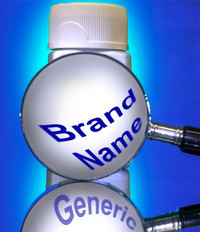Approximately 75% of pharmacists indicated that they would be confident or very confident in substituting an interchangeable biosimilar with the reference product if both shared the same active ingredient or non-proprietary name of the reference biological, according to a survey published in JMCP [1].
Survey among pharmacists shows high confidence for biosimilar substitution when same generic name is used
Biosimilars/Research
|
Posted 20/03/2015
 0
Post your comment
0
Post your comment

The Academy of Managed Care Pharmacy, the American Pharmacists Association, and the American Society of Health-System Pharmacists, the three associations that represent pharmacists across the United States, fielded a survey to their membership or a partial segment of their membership via an online survey in November and December 2014, and a total of 93 responses were collected.
The survey showed that pharmacists, however, were less confident with such substitution when the non-proprietary name was completely different (only 25% felt confident or very confident) or was different because of a prefix or suffix (37% felt confident or very confident).
Pharmacists were also asked about their level of familiarity with biosimilars. Based on the responses, pharmacists will require substantial education on biosimilars and interchangeable biosimilars prior to the launch of the first US product. Education should focus on 3 areas: 1) instances where substitution is allowed according to US Food and Drug Administration (FDA) approval, i.e. as a biosimilar or interchangeable biological; 2) appropriate recording of biological dispensed for pharmacovigilance efforts; and 3) notification requirements driven by specific state laws.
Finally, when asked about reporting practices for biologicals dispensed, the majority of respondents (70%) indicated using National Drug Codes to record use of biologicals; however, 10% of respondents reported using either the non-proprietary name or the Healthcare Common Procedure Coding System code as the identifier.
This survey highlights the importance of carefully evaluating the impact of the naming convention of biosimilars to the different stakeholders. According to this survey, pharmacists feel most confident in biosimilar substitution when the biosimilar and the reference product share the same non-proprietary name.
The recent approval of the first biosimilar in the US market on 6 March 2015, Zarxio™, a biosimilar to Neupogen® (filgrastim), still left the naming question unresolved, as FDA assigned to it only a placeholder non-proprietary name for this product as ‘filgrastim-sndz’ [2]. This placeholder, however, follows the approach of the proposal of the INN Expert Group at the World Health Organization (WHO) of developing a biological qualifier (4-letter code, randomly assigned) that would be added to non- proprietary names to identify manufacturer and production site of any biological (innovator and biosimilar products) [3, 4].
Conflict of interest
The authors report no financial conflicts of interest related to the subject or products mentioned in the published paper. The manuscript was written by Fernandez-Lopez, Kazzaz and Bashir and revised by McLaughlin, Fernandez-Lopez, Kazzaz and Bashir.
Abstracted by Sara Fernandez-Lopez, PhD, MBA, Director, Reimbursement Strategy, Xcenda, USA.
Editor’s comments
Readers interested to learn more about survey findings among European physicians on biosimilars are invited to visit www.gabi-journal.net to view the following manuscripts published in GaBI Journal:
Readers interested in contributing a research or perspective paper to GaBI Journal – an independent, peer reviewed academic journal platform – please send us your submission here.
Related articles
More discussion over WHO biological qualifier
Calls for biosimilars to have same INN at WHO meeting
Biologicals in EU to be identified by brand names
References
1. Fernandez-Lopez S, et al. Assessment of pharmacists’ views on biosimilar naming conventions. J Manag Care Spec Pharm. 2015;21(3):188-95.
2. GaBI Online - Generics and Biosimilars Initiative. FDA approves its first biosimilar [www.gabionline.net]. Mol, Belgium: Pro Pharma Communications International; [cited 2015 Mar 20]. Available from: www.gabionline.net/Biosimilars/News/FDA-approves-its-first-biosimilar
3. GaBI Online - Generics and Biosimilars Initiative. More discussion over WHO biological qualifier [www.gabionline.net]. Mol, Belgium: Pro Pharma Communications International; [cited 2015 Mar 20]. Available from: www.gabionline.net/Biosimilars/General/More-discussion-over-WHO-biological-qualifier
4. World Health Organization. Biological qualifier: an INN proposal. INN Working Doc. 14.342. Revised draft July 2014 [homepage on the Internet]. 2014 Jul 30 [cited 2015 Mar 20]. Available from: http://www.who.int/medicines/services/inn/bq_innproposal201407.pdf
Permission granted to reproduce for personal and non-commercial use only. All other reproduction, copy or reprinting of all or part of any ‘Content’ found on this website is strictly prohibited without the prior consent of the publisher. Contact the publisher to obtain permission before redistributing.
Copyright – Unless otherwise stated all contents of this website are © 2015 Pro Pharma Communications International. All Rights Reserved.
News
FDA approves Poherdy (first interchangeable pertuzumab) and Armlupeg (pegfilgrastim) biosimilars
EMA recommends approval for insulin glargine biosimilar Ondibta and denosumab biosimilar Osqay
General
Samsung Bioepis wins Pyzchiva case; Regeneron patent rulings threaten foreign biosimilars
Chinese biosimilars go global: growth, partnerships, and challenges
What is the future for the US biosimilar interchangeability designation

Biosimilars/Research Posted 05/06/2025
Biosimilar clinical efficacy studies: are they still necessary?

Biosimilars/Research Posted 27/05/2025
The best selling biotechnology drugs of 2008: the next biosimilars targets








Post your comment